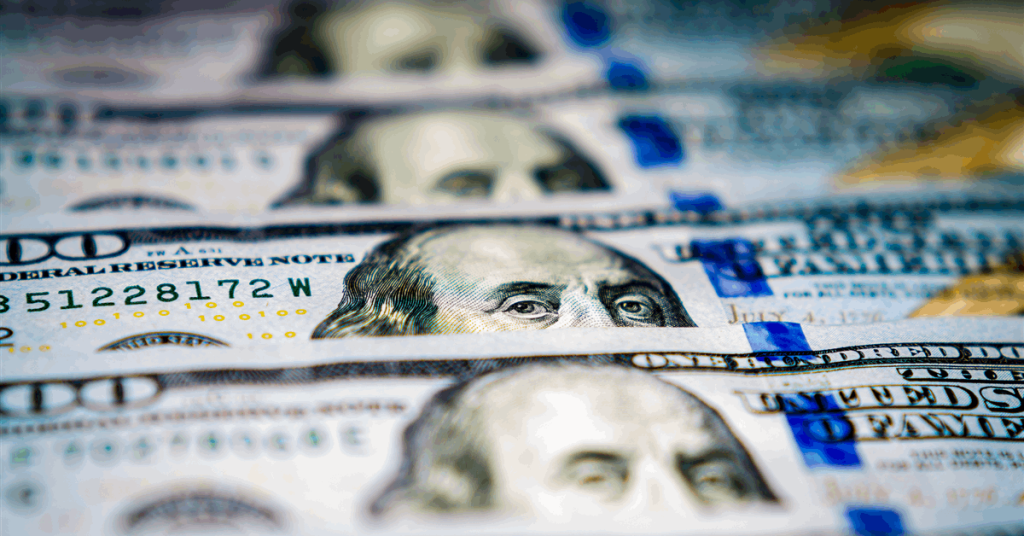Vitol Group handed a record $10.6 billion to its executives and senior staff through share buybacks last year, as the fallout of the energy crisis continued to deliver extraordinary riches to the world’s commodity traders.
The share repurchase – almost certainly the highest such payout in the industry’s history – means privately held Vitol has distributed over $31 billion to its partners in the past decade, according to the company’s audited annual accounts seen by Bloomberg News.
The numbers show how the disruptions that followed Russia’s invasion of Ukraine have handed a spectacular bonanza to a small group of commodity traders that their predecessors could only have dreamed of. Vitol has paid out more through buybacks in the past three years than in the previous 17 years combined.
The world’s largest commodity trading house, the company is owned by 450-500 of its employees, a senior executive told a New York court last year. Based on that number, the 2024 payout would represent an average of over $20 million per partner, with some top executives and traders likely having received multiples of that.
The results also cement Vitol’s position as the most profitable commodity trading house by far: its net profit for the year of $8.7 billion was more than the combined profits of its four closest rivals, Glencore Plc, Trafigura Group, Mercuria Energy Group Ltd. and Gunvor Group.
Still, the huge payout comes as earnings are moderating across the industry. Vitol’s buyback in 2024 outstripped its profit for the year, meaning that the group’s equity dropped from $32.5 billion at the end of 2023 to $30.7 billion at the end of 2024.
There’s a similar trend taking place across the largest commodity trading companies, many of which operate as employee-owned partnerships, particularly as senior executives who have accumulated valuable shareholdings retire. At Vitol, executive board members including Chris Bake, the company’s longtime head of origination, Mike Muller, head of Asia, and Gerard Delsad, head of the Geneva office, have all recently announced their retirement.
In a management report, Vitol said that it had spent a further $1.7 billion on buybacks so far in 2025, as of June.
A Vitol spokesperson didn’t immediately respond to requests for comment.
The share buybacks are paid on top of salaries and bonuses. Vitol’s personnel expense amounted to $2.1 billion in 2024, down 10 percent from the previous year, according to the accounts. The company says on its website it has over 1,800 employees.
As well as the bumper payouts, commodity trading houses are also re-investing a portion of their mega profits into assets, from oil wells and refineries to renewables. In 2024, Vitol bought Italian refiner Saras SpA as well as coal trader Noble Resources Trading Ltd. In 2025, it has announced a $1.65 billion deal to buy oil and liquefied natural gas projects from Eni SpA in Ivory Coast and the Republic of Congo.
Vitol and several of its energy trading rivals have also embarked on an aggressive expansion into metals over the past year.
Also in 2024, according to the accounts, Vitol reduced its shareholding in Vitol Bahrain, which has long been a key entity for its deals in the Middle East, from 100 percent to 11 percent. It also reorganized its shareholding in VPI, the UK power generation unit whose activities have drawn scrutiny as prices soared, maintaining a 25 percent stake through a Jersey holding company.
What do you think? We’d love to hear from you, join the conversation on the
Rigzone Energy Network.
The Rigzone Energy Network is a new social experience created for you and all energy professionals to Speak Up about our industry, share knowledge, connect with peers and industry insiders and engage in a professional community that will empower your career in energy.
element
var scriptTag = document.createElement(‘script’);
scriptTag.src = url;
scriptTag.async = true;
scriptTag.onload = implementationCode;
scriptTag.onreadystatechange = implementationCode;
location.appendChild(scriptTag);
};
var div = document.getElementById(‘rigzonelogo’);
div.innerHTML += ” +
‘‘ +
”;
var initJobSearch = function () {
//console.log(“call back”);
}
var addMetaPixel = function () {
if (-1 > -1 || -1 > -1) {
/*Meta Pixel Code*/
!function(f,b,e,v,n,t,s)
{if(f.fbq)return;n=f.fbq=function(){n.callMethod?
n.callMethod.apply(n,arguments):n.queue.push(arguments)};
if(!f._fbq)f._fbq=n;n.push=n;n.loaded=!0;n.version=’2.0′;
n.queue=[];t=b.createElement(e);t.async=!0;
t.src=v;s=b.getElementsByTagName(e)[0];
s.parentNode.insertBefore(t,s)}(window, document,’script’,
‘https://connect.facebook.net/en_US/fbevents.js’);
fbq(‘init’, ‘1517407191885185’);
fbq(‘track’, ‘PageView’);
/*End Meta Pixel Code*/
} else if (0 > -1 && 76 > -1)
{
/*Meta Pixel Code*/
!function(f,b,e,v,n,t,s)
{if(f.fbq)return;n=f.fbq=function(){n.callMethod?
n.callMethod.apply(n,arguments):n.queue.push(arguments)};
if(!f._fbq)f._fbq=n;n.push=n;n.loaded=!0;n.version=’2.0′;
n.queue=[];t=b.createElement(e);t.async=!0;
t.src=v;s=b.getElementsByTagName(e)[0];
s.parentNode.insertBefore(t,s)}(window, document,’script’,
‘https://connect.facebook.net/en_US/fbevents.js’);
fbq(‘init’, ‘1517407191885185’);
fbq(‘track’, ‘PageView’);
/*End Meta Pixel Code*/
}
}
// function gtmFunctionForLayout()
// {
//loadJS(“https://www.googletagmanager.com/gtag/js?id=G-K6ZDLWV6VX”, initJobSearch, document.body);
//}
// window.onload = (e => {
// setTimeout(
// function () {
// document.addEventListener(“DOMContentLoaded”, function () {
// // Select all anchor elements with class ‘ui-tabs-anchor’
// const anchors = document.querySelectorAll(‘a .ui-tabs-anchor’);
// // Loop through each anchor and remove the role attribute if it is set to “presentation”
// anchors.forEach(anchor => {
// if (anchor.getAttribute(‘role’) === ‘presentation’) {
// anchor.removeAttribute(‘role’);
// }
// });
// });
// }
// , 200);
//});

